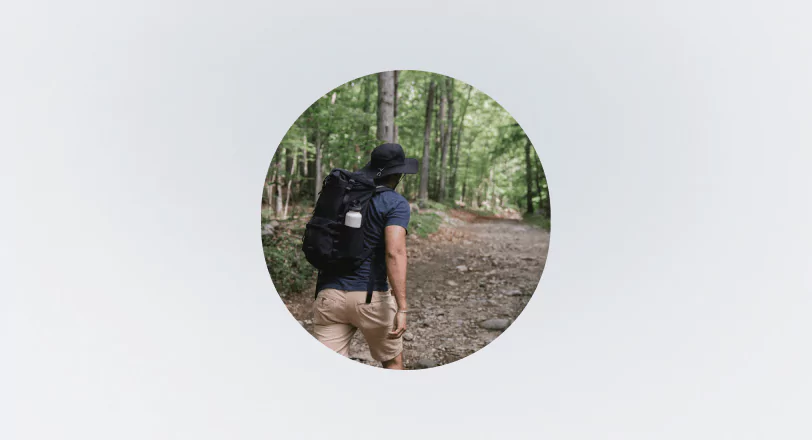In the digital era, where 'near me' searches are the norm, it's crucial to position your business front and center in local search results.
Today, we're here to share with you 10 expert strategies to boost your local SEO and ensure your tours and activities shine in those crucial local searches.
Understanding Local Search Engine Optimization

Before we dive into specific strategies, let’s clarify what Local SEO is.
Local Search Engine Optimization (SEO) refers to the process of optimizing your online presence to attract more business from relevant local searches.
These searches take place on Google and other search engines and often have a geographical component to them, like “food tours in San Francisco” or “safari adventures near me.”
By optimizing web pages for local SEO, you ensure that your business appears in search results for people in your area or those planning to visit your area.
Local SEO and Its Connection to Organic Traffic

Local SEO is intrinsically linked to organic traffic, which refers to visitors who land on your website as a result of unpaid search results.
When your business ranks high in local searches, it captures the attention of a highly targeted audience—people actively searching for the specific services you offer in your area. This leads to an increase in organic traffic, which is often more valuable than traffic from other sources.
Why?
Because these visitors are typically further along in the decision-making process; they're actively seeking, not just casually browsing. So by optimizing landing page on your site for local SEO, you're essentially placing your business directly in the path of potential customers who are most likely to convert, thus boosting not just your web traffic, but also the quality and relevance of that traffic.
This synergy between local SEO and organic traffic is a powerful tool for tour operators, as it ensures that your website traffic is seen by the right people at the right time.
The Importance of Local SEO for Tour Operators

Now, why is local SEO so important for tour operators? The answer lies in visibility and relevance of tourism websites. In a world where the majority of travelers use online search to plan their activities, being visible in local search results is critical.
Local SEO helps you reach potential customers precisely when they're looking for the services you offer. It’s about connecting with your target audience at the right time and place, making it an essential component of your digital marketing strategy.
With this foundational understanding, let’s explore how specific tour operators can apply these local SEO strategies effectively.
Top 10 Strategies of Local SEO for Tour Operators
1. Mastering Google My Business

First things first, your Google My Business (GMB) profile is your digital storefront. It's essential to claim, verify, and optimize it. So how can you do it?
- Ensure your business name, address, and phone number (NAP) are accurate and consistent across the web.
- Upload high-quality photos of your tours, and don’t forget to list all the services you offer.
- Regularly updating your GMB profile can significantly improve your visibility in local searches.
Imagine you run a food tour in San Francisco. Your Google My Business profile is your first impression. Ensure it’s filled with mouth-watering images of your tours, detailed descriptions of the cuisines you explore, and every tour’s unique features. Regularly post updates about new dishes or special events, and encourage past customers to leave reviews with photos of their favorite food stops.
2. Utilizing Local Keywords

Your next big move? Keyword optimization. Integrating local keywords into your website's content is crucial. If your tours are based in Miami, for instance, keywords like “Miami boat tours” or “Everglades adventure Miami” should be organically woven into your website’s narrative.
For a wine tasting tour in Napa Valley, integrate keywords like “Napa Valley wine tours” into google search results or “best vineyard tours near me” into your website content. In your blog, you could have articles like “Top 5 Vineyards to Visit in Napa Valley,” which not only use these keywords but also provide valuable content to your website visitors too.
Remember, it's not just about stuffing web page and keywords; it's about creating meaningful, engaging content that resonates with your audience.
3. Mobile Optimization: A Non-Negotiable

In an age where smartphones are ubiquitous, having a mobile-friendly website is non-negotiable. Most 'near me' searches are performed on mobile devices, and Google prioritizes mobile-optimized sites in its search rankings. Ensure your website is responsive, loads quickly, and offers a seamless user experience on all devices.
If you’re a travel agency offering adventure tours, like kayaking in Colorado, your customers are likely searching for you on-the-go. A fast, responsive website that showcases your thrilling tours with stunning imagery and easy-to-navigate booking options is vital. Test your site on various devices to ensure a seamless experience.
4. Building Local Links

Link building is a cornerstone of SEO, and it's even more critical for local search optimization. Aim to get backlinks from reputable local websites like news outlets, community blogs, or local business directories. These internal links not only drive traffic but also reinforce your local relevance to search engines.
For instance, are you operating historical tours in Boston? Reach out to local historical societies, museums, and educational institutions for link-building. Getting featured in a local blog post about Boston's history or a local news piece about unique tours can significantly boost your local relevance.
5. Leverage Customer Reviews and Ratings

Customer reviews are a goldmine. They not only build trust among potential customers but also signal to search engines that your business is legitimate and reputable. Encourage your customers to leave reviews on your GMB profile and respond to them – yes, even the negative ones – in a professional and constructive manner.
Run a scenic photography tour in the Rockies? Encourage your participants to leave reviews with their favorite photographs from the tour. Respond to each review to show potential customers that you value feedback and are engaged with your clientele.
6. Creating Compelling Local Content

Content is king, and in the realm of local SEO, local content reigns supreme. Create blog posts, videos, and social media content that highlights local attractions, events, or even guides about your area. This strategy positions you as a local expert and community member, not just a business.
For a city walking tour in New York, create blog posts about hidden gems in the city, local history, or upcoming events. This content, rich in local flavor, not only attracts more traffic from potential customers but also establishes you as a local expert.
7. Implementing Schema Markup

Schema markup might sound technical, but it's a powerful tool. By adding it to your website's HTML, you help search engines understand your content better. This can include information about your tour schedules, prices, or special events.
If you’re offering wildlife safari tours in Kenya, use schema markup to detail your tour schedules, pricing, and special features like ‘sunset safaris’ or ‘big five tours’. This helps search engines present your offerings more attractively in their search engine results pages. It's like giving search engines a roadmap of your site’s most important content.
8. Engaging on Social Media

Social media is your direct line to your community. Use platforms like Facebook, Instagram, and Twitter to engage with your audience. Post about local events, share behind-the-scenes glimpses of your tours, and interact with customers. Social media doesn’t just boost your online presence; it also strengthens your local connections.
Imagine you provide beach excursions in Hawaii. Share posts of stunning beach sunsets, happy customers surfing, or relaxing on a secluded beach. Use hashtags like #HawaiiBeachLife to increase your posts' visibility and engage in conversations with followers.
9. Forming Local Partnerships

Partnerships can propel your business forward. Collaborate with local hotels, restaurants, and other local businesses, to create bundled offers or co-promotional content. These partnerships can expand your reach and reinforce your presence in the local market.
A culinary tour operator in New Orleans could partner with local hotels to offer guests a special package that includes a tour and accommodation. Such partnerships are a win-win, increasing the visibility and reach of both businesses.
10. Localized Google Ads Campaigns

Lastly, consider investing in Google Ads with a local focus. Tailor your ads to target your location specific keywords, and potential customers in your area. While organic SEO is crucial, paid ads can give you that extra push, especially when you're looking to boost visibility quickly.
If you run cultural city tours in Rome, target your Google Ads to tourists already in or planning to visit Rome. Use specific ad copy like “Discover Ancient Rome with our expert-guided tours” to attract those users searching only for cultural experiences in the city.
How to Implement Those Strategies
Now, let's talk about bringing all these strategies together. It's not just about implementing them in isolation; it's about creating a cohesive, comprehensive local SEO strategy that interweaves these elements seamlessly.
Consistency is Key
Whether it's your NAP information, your content, or your social media posts, consistency is key. Ensure your messaging and branding are consistent across all platforms. This consistency not only helps with brand recognition but also strengthens your SEO efforts.
Engage with Your Community
Remember, at its heart, local SEO is about community. Engage with your local audience, participate in community events, and showcase your involvement. This not only bolsters online visibility of your local presence but also builds lasting relationships with your customers.
Stay Updated
The digital landscape is always evolving, and so should your strategies. Keep abreast of the latest SEO trends and algorithm updates. Regularly review and update your strategies to ensure they remain effective.
Measure Your Success
Finally, track your progress. Use tools like Google Analytics to monitor your website’s traffic, see where your visitors are coming from, and understand what's working. This insight allows you to refine your strategies and focus on what brings the best results.
Final Takeaways

In conclusion, excelling in 'near me' searches requires a blend of technical savvy, community engagement, and consistent effort.
By adopting these 10 strategies, you're not just optimizing for search engines; you're building a robust, locally-focused tourism and travel industry, and brand that resonates with your community. So go ahead, implement these strategies, and watch your tour and activity business thrive in the local search landscape!





